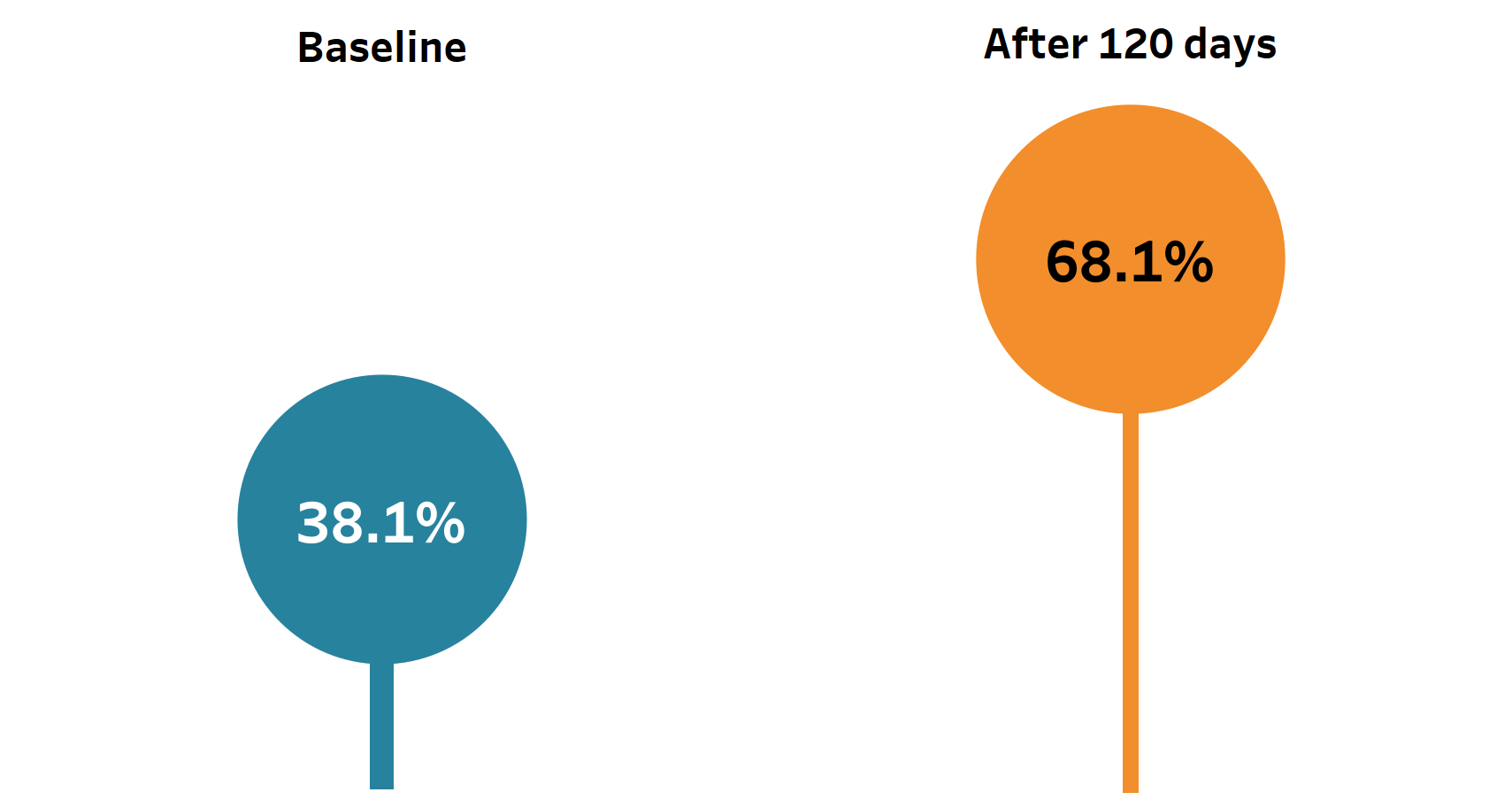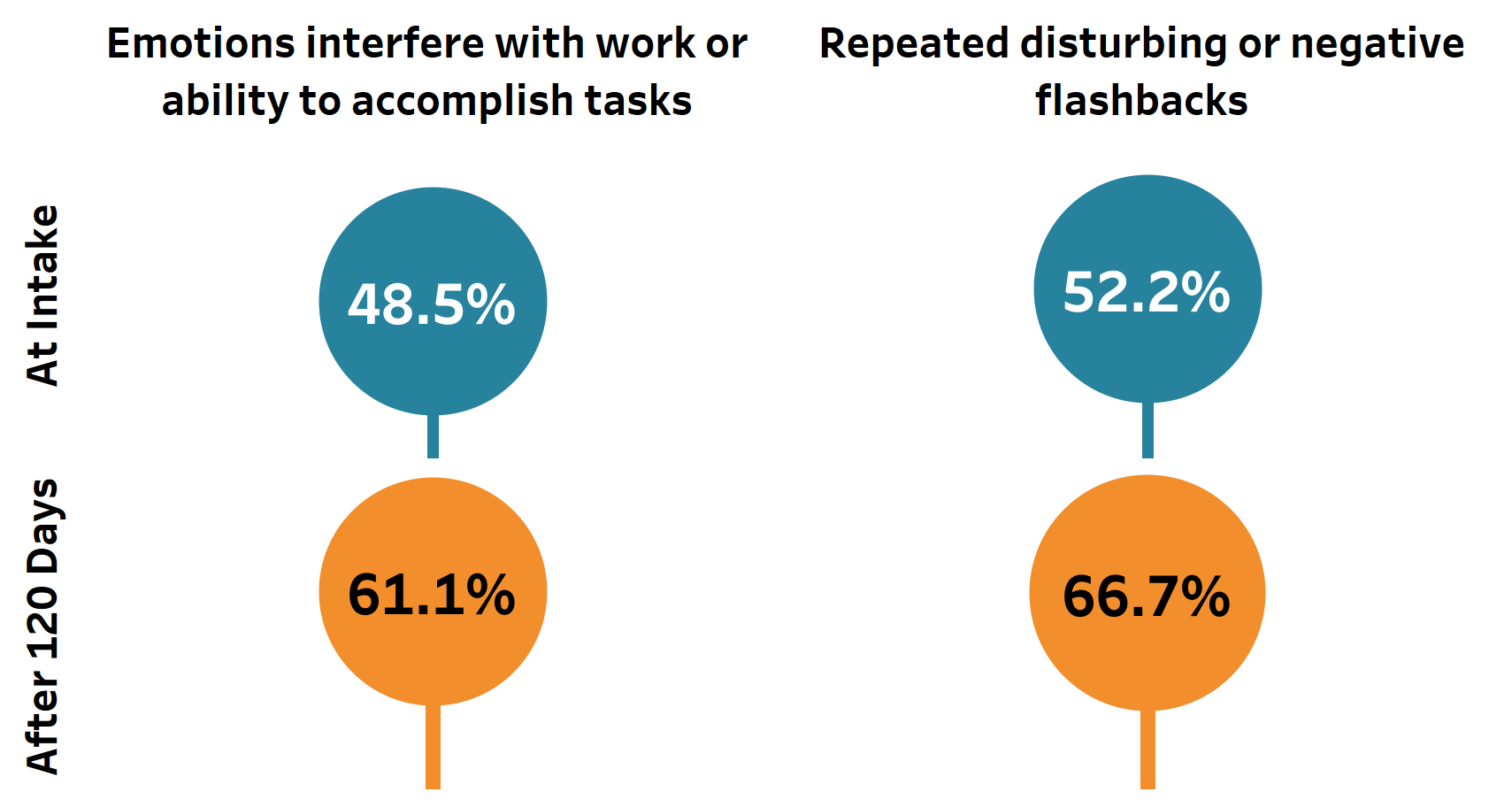Data drop: Emotional wellness
April 10, 2018
This month's data drop is 53%.
From January 1, 2016 until March 6, 2018, Face It TOGETHER (FIT) members with the disease of addiction reported, through our Recovery Capital Index (RCI), they improved their emotional wellbeing after at least 120 days of engagement with a peer addiction management coach.
The most significant change was satisfaction with emotions or feelings. The baseline RCI showed a little more than one-third of our members agreed they were satisfied with their emotional wellbeing. After 120 days of engagement, we saw a 53% increase in members who were satisfied (Figure 1).
Improvement in emotional wellness after 120 days of engagement also included:
- 33% more report that work or task accomplishments are not impacted by emotions; and
- 37% less likely to have repeated disturbing or negative flashbacks (Figure 2).
Traumatic life experiences, such as physical, sexual and emotional abuse, or neglect, occur at alarming rates, and trauma-exposed individuals are at heightened risk for post-traumatic stress disorder, depression, addiction and anxiety disorders. [1],[2]


Face It TOGETHER peer coaches work with people impacted by trauma and addiction to understand their feelings and emotions, as well as connect them to professional counseling as needed.
The evaluation of addiction wellness encompasses more than sobriety. We are working to understand the correlation of peer addiction management coaching to emotional wellness for our members.
[1] Kilpatrick, D. G., Ruggiero, K. J., Acierno, R., Saunders, B. E., Resnick, H. S., & Best, C. L. (2003). Violence and risk of PTSD, major depression, substance abuse/dependence, and comorbidity: results from the National Survey of Adolescents. Journal of consulting and clinical psychology, 71(4), 692.
[2] Ruggiero, K. J., Del Ben, K., Scotti, J. R., & Rabalais, A. E. (2003). Psychometric properties of the PTSD Checklist—Civilian version. Journal of traumatic stress, 16(5), 495-502.
